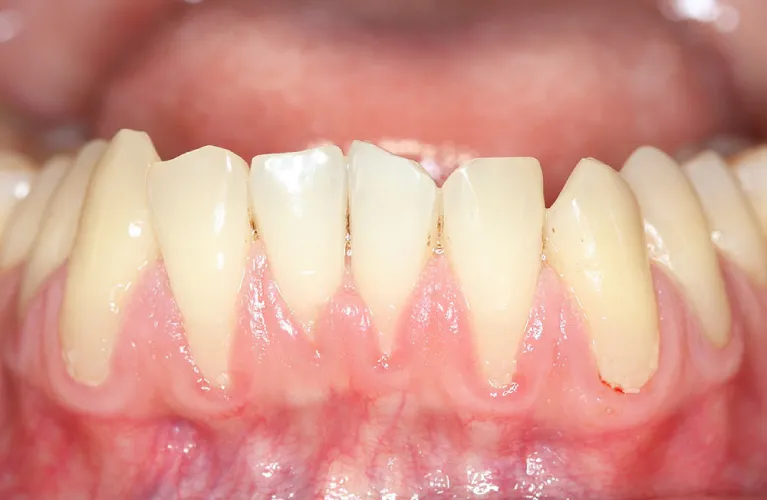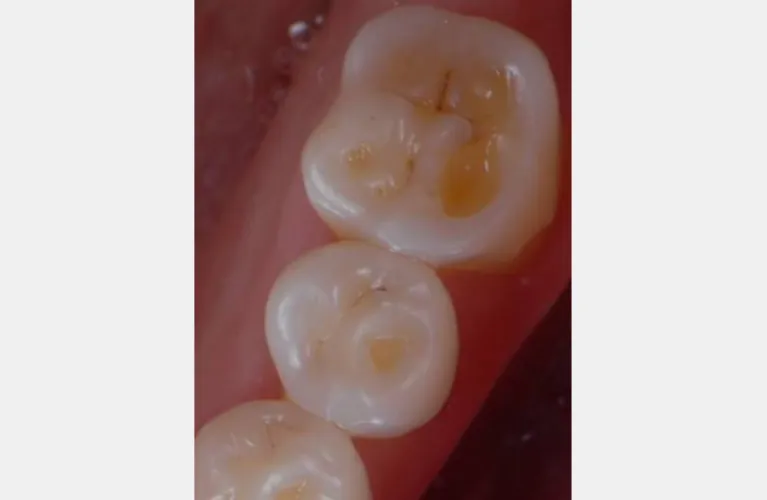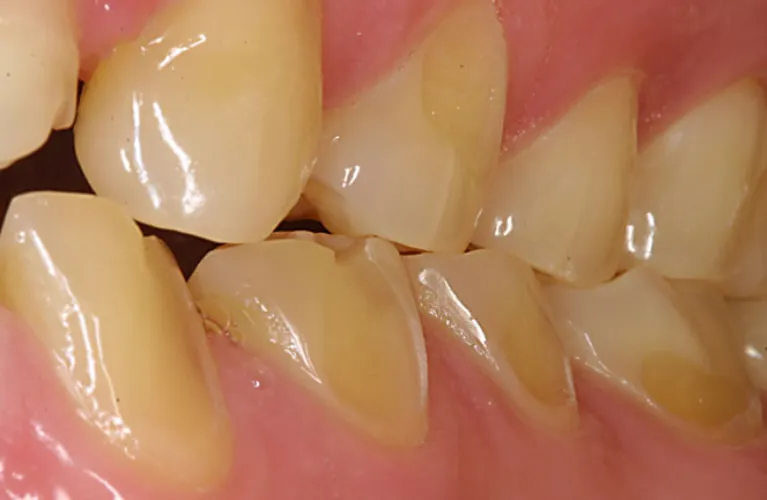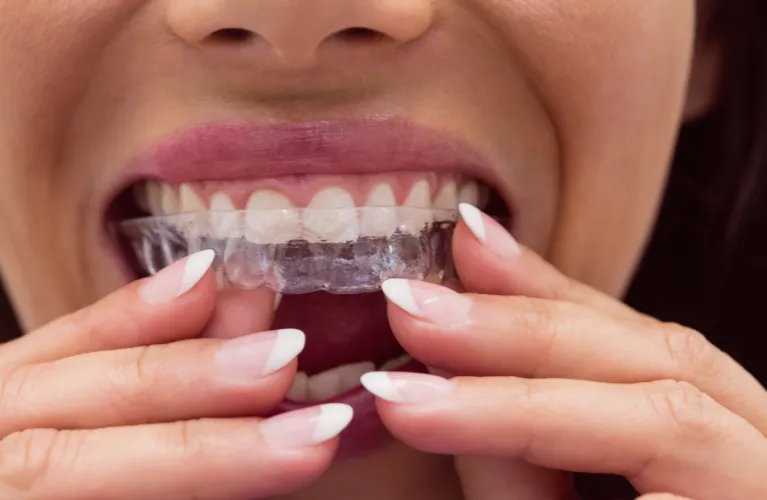"Protecting Your Pearly Whites: Preventing and Managing Tooth Sensitivity" |Teeth sensitivity | Tooth Pain

Teeth sensitivity, also known as dentin hypersensitivity, is a common dental condition characterized by discomfort or pain in the teeth when exposed to certain stimuli.
It occurs when the underlying dentin layer of exposed root surfaces of the tooth becomes exposed, either due to enamel erosion, gum recession, or both. Dentin is a sensitive protective layer around the exposed tooth surface and roots, that contains tiny tubules leading to the exposed tooth roots’ nerve centre, making it more susceptible to external factors.

What causes sensitive teeth, and how can I treat them?
If you have sensitive teeth you may experience sharp, temporary teeth irritation. Sensive teeth typically occur from worn and exposed dental enamel.
When it comes to sensitive teeth, go to the dentist immediately. The dentist often diagnoses underlying tooth problems or recurrent tooth problems with a dentist.
When dentin is exposed, various triggers can cause sensitivity, including:
Temperature sensitivity: Consuming hot or cold foods acidic liquids or breathing cold air and beverages can provoke a sharp, fleeting pain in sensitive teeth.
Sweet or acidic foods: Eating sugary or sweet foods or acidic foods can cause discomfort or sensitivity.
Brushing or flossing: Aggressive brushing techniques or using a hard-bristled toothbrush can lead to enamel wear and gum recession, exacerbating sensitivity.
Pressure treat sensitive teeth: Applying pressure prevent to treat sensitive teeth while biting or chewing can be painful for individuals with sensitive teeth.
The causes of teeth sensitivity can vary, but some common factors include:

Tooth decay
Cavities and dental caries can expose dentin and lead to sensitivity.
Gum disease
Gingivitis or periodontitis can cause gum recession, exposing the tooth’s roots and leading to sensitivity.


Gum recession
Some people are genetically prone to thin gum tissue. Other people develop gum recession because of periodontal disease. With gum recession, your gum tissue pulls away from your teeth, exposing the roots.
Enamel erosion because of Acidic Foods and Drinks -
Acidic foods and beverages, certain medications, and stomach acid reflux can erode the protective enamel layer of the teeth.
Eating Acidic Foods
How much do you need for the perfect diet? Your teeth! Take too many acids and drink; that would damage your enamel and expose the delicate layers underneath. Do you have any plans for removing this Tart Favorite? Take the acid out of the bottle and drink cheese and water.




Teeth grinding
Habitual teeth grinding or clenching, known as bruxism, can wear down the enamel of a cracked tooth or broken teeth, and cause sensitivity.


Brushing too hard
Over time, brushing your teeth too hard or using a hard-bristled toothbrush can wear down tooth enamel and cause the front whitening toothpaste or tooth’s dentin to be exposed. It can also cause gum recession (when your gum tissue pulls away from your teeth).
Age
Teeth sensitivity is highest between the ages of 25 and 30.
Dental procedures:
Teeth whitening treatments, dental fillings, or orthodontic adjustments can temporarily increase tooth sensitivity.
Plaque buildup
The presence of plaque on the gum line or tooth surface from the gum line the tooth root, cracked tooth or teeth surfaces can cause sensitivity.
Mouthwash use
Some over-the-counter mouthwashes contain acids that can worsen teeth sensitivity if you have exposed dentin (the middle layer of the tooth). The acids further damage the dentin layer of the tooth. If you have dentin sensitivity, ask your dentist about the use of a neutral fluoride solution.
Does a sensitive tooth mean infection?
It doesn’t happen every once in a while. Sometimes toothsensitivity can indicate tooth erosion (wound and worn out) and tooth recession. It may be temporary tooth sensitivity but also mean your teeth have cracks and infections.
The toothache may appear dull achy or broken teeth are swollen with an ache. If your teeth are sensitive or are in discomfort, you should immediately consult your dentist.
Can sensitive tooth pain go away?
Yeah. Sometimes the temporary sensitivity to teeth is completely removed by the tooth root canal surface itself. If your teeth feel discomfort, talk to your dentist about what causes the sensitive tooth side. You could have lost enamel or exposed teeth. Sometimes there is a treatment option for resolving temporary tooth sensitivity and tooth discomfort in this situation.
Treatment of Teeth Sensitivity -
How do you stop sensitive teeth pain?
Sensitive teeth pain can be quite discomforting, but there are several strategies you can try to alleviate or reduce the pain. Here are some suggestions:
Use desensitizing fluoride toothpaste often: Specialized desensitizing toothpaste, formulated for sensitive teeth can help alleviate the tooth pain too. These desensitizing toothpaste products usually contain compounds that block the sensation of what causes sensitive tooth the pain too. Use them regularly as directed for best results.
Practice good, oral health and hygiene: Maintaining proper, oral health and good, oral health and hygiene is essential. Brush your teeth gently using a soft-bristled toothbrush, preferably one designed for sensitive teeth. Avoid brushing your teeth too aggressively, as it can damage tooth enamel and exacerbate sensitivity. Additionally, floss regularly to clean the areas between your teeth.
Avoid acidic foods and drinks
Acidic substances can erode tooth enamel and increase sensitivity. Limit your consumption of acidic foods and drinks such as citrus fruits, tomatoes, carbonated drinks, and fruit juices. If you do consume them, rinse your mouth with water afterward.

Preventing impaction:
Wisdom teeth, also known as third molars, often lack sufficient space to fully erupt. This can lead to impaction, where the wisdom teeth erupt but remain partially or completely trapped beneath the gums. Removing wisdom teeth can prevent this issue and associated complications.
Preventing impaction:
Wisdom teeth, also known as third molars, often lack sufficient space to fully erupt. This can lead to impaction, where the wisdom teeth erupt but remain partially or completely trapped beneath the gums. Removing wisdom teeth can prevent this issue and associated complications.
Limit consumption of hot and cold foods
Extreme temperatures can trigger sensitivity. Avoid consuming very hot or cold foods and drinks. Opt for lukewarm or room temperature items instead.
Use a mouthguard for when brushing your teeth are your teeth sensitive due to tooth grinding: If you have a habit of grinding your teeth (bruxism), it can contribute to tooth sensitivity. Consult your dentist about getting a custom mouthguard to wear at night, which can help your teeth sensitive and protect your teeth from grinding forces.

Rinse with a fluoride mouthwash
Fluoride mouthwash can strengthen tooth enamel and reduce sensitivity. Use it as directed by your dentist.
Visit your dentist:
If your tooth sensitivity persists or worsens despite trying to home remedies, it’s essential to see your dentist regularly.
Remember, these suggestions are general guidelines. It’s always best to talk to your dentist and talk to your dentist and consult with your dentist for personalized advice and treatment options based on your specific situation.
Looking For Treatment for Teeth Sensitivity or Dentinal Hypersensitivity in Vadodara

